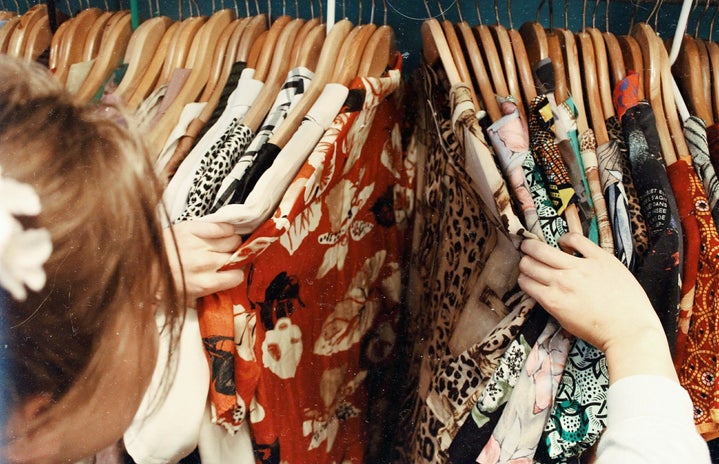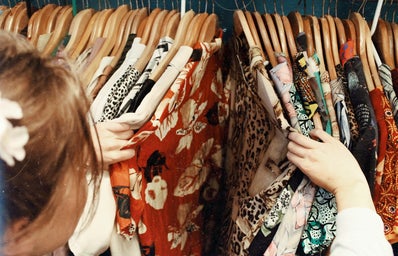Fast fashion is an inexpensive business model that allows billion-dollar retail corporations to respond to the latest fashion trends through mass production of inexpensive clothing at a rapid rate.
In today’s ideal world, fast fashion is the go-to source to obtain at-home runway looks at a fraction of the price. With popular retail companies such as H&M, Zara, and Shein making their mark, the world around us is seeing a rapid rise in the profit for this business technique. However, it is no secret that this easy way out comes at a detrimental impact.
Environmentally, fast fashion has caused a significant dent. In the production of just one cotton t-shirt, 2,700 thousand liters of water are necessary. In addition, the consumption of clothing in modern-day society is on an exponential increase. As of 2019, 62 million metric tons of apparel were consumed globally. As this apparel is discarded, a whopping 57% of it is discarded into landfills!
The outsourcing done by these companies leads to the exploitation of low-income populations as a labor source. With drastically low wages, unsafe working conditions, inhumane working hours, and the frequent use of child labor, it is evident that these billion-dollar corporations are taking advantage of their laborers. The European Parliament has described this situation as “slave labor”, and yet nothing is being done because these workers are also left unheard.

This isn’t to say that shopping ethically isn’t ideal for our planet. If the privilege can be exercised, then, by all means, it should be. Fast fashion is often conflated with the generalization of the consumer’s love for cheap goods to strive for our superficial fulfillment. With the ability to rapidly produce and discard clothing, it is easy for companies like these to keep up with the latest trends. The appeal to consumers is undeniably there with stylish clothing available at the click of a button.
The harsh reality lies in the fact that the issue of fast fashion simply is not one that consumers can tackle on their own. Companies that need to take accountability for their actions. The movement towards ethical consumerism should not lie centrally in the boycotting of fast fashion as not everyone can afford that lifestyle. Rather, the priority of this movement should be spreading the truth behind the fast fashion industries and creating accountability in the groups that can actually initiate change– the corporations themselves along with the consumers that have the privilege to afford ethical consumption.


